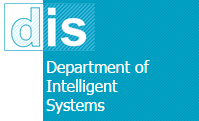Study
The nature of work has been changing over the years bringing more complexity, widening the scope for expressing individual discretion and creating the need for a level of creativity even in the most mundane jobs. Increasingly companies are expecting people to become their own managers and are looking to develop entrepreneurial and innovative cultures to ensure their competitive advantage. By nurturing play organisations stimulate the right brain which can improve individual creative output and productivity (Pink, D., 2008; Mainemelis, C. and Ronson, S. 2006).
The aim of this research is to look how individuals in work setting respond to opportunities to develop own playfulness and how it is perceived by them. Play cannot happen without intrinsic motivation and its primary drivers are enjoyment and discovery rather than goals and efficiency. Therefore practitioners need to have a deep understanding of this phenomena to be able to create conditions where it can emerge and promote a culture where it will be valued.
Research Question
To explore links between playfulness and daily experiences at work.
To explore how employees respond to an invitation to become more playful and what their perceptions of the value and drawbacks of such activities are.
Methodology
This study uses phenomenological approach to look into personal experiences of individuals and how they are affected by engagement in playful activities. It is also aiming to explore the meaning that individuals attach to those experiences.
To study the experiences as they unfold throughout the day Experience Sampling Method originally developed by Csikszentmihalyi will be used. It allows to study phenomenological experiences systematically (Hektner et al, 2007). Participants in the study will be asked to record their daily experiences using ESM for a week prior to engaging with playful activities and then for another week during which they will be encouraged to engage with a variety of opportunities for playfulness. All activities are optional to allow participants to choose the ones where they are likely to experience authentic playfulness. The data will be used to compare whether there were any notable differences in daily experiences of individuals before and during the intervention.
However, measuring momentarily experiences does not allow to fully study the phenomenon due to meaning creation being a dynamic process. As ESM doesn’t build on reflection or retrospective evaluation of the importance or influence of one’s experience (Koro-Ljungberg, et al, 2008) additional interviews with participants will be held to discuss what it was like for them to take part in playful activities.




